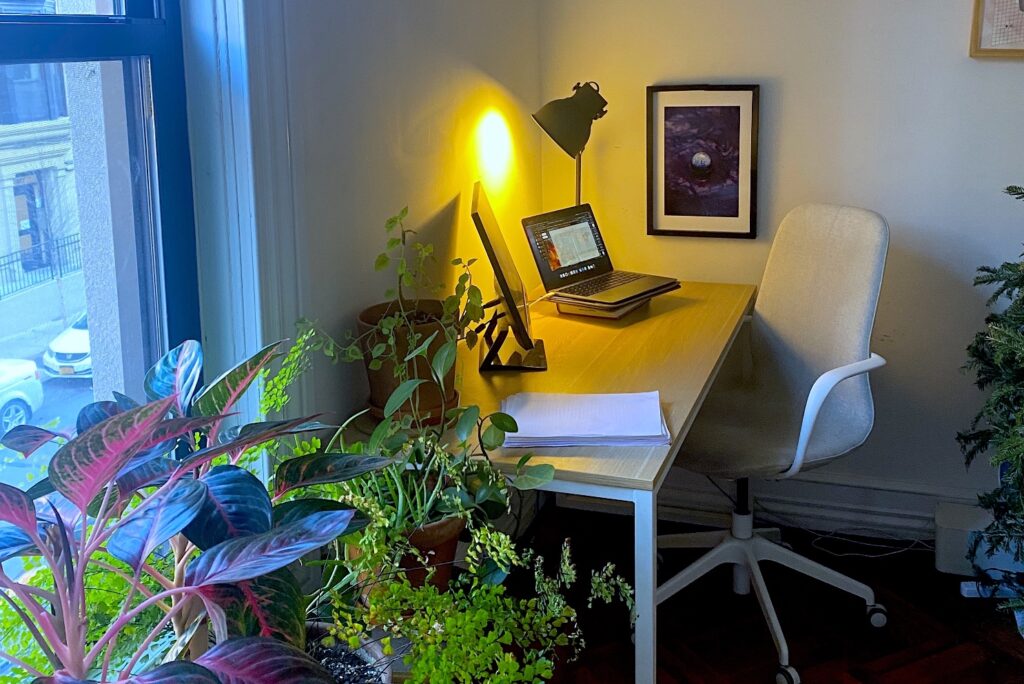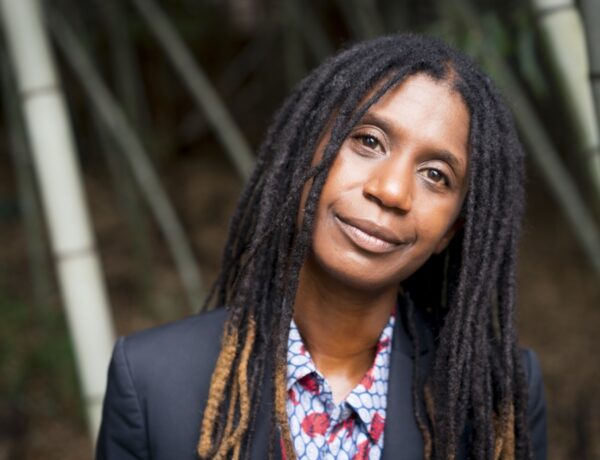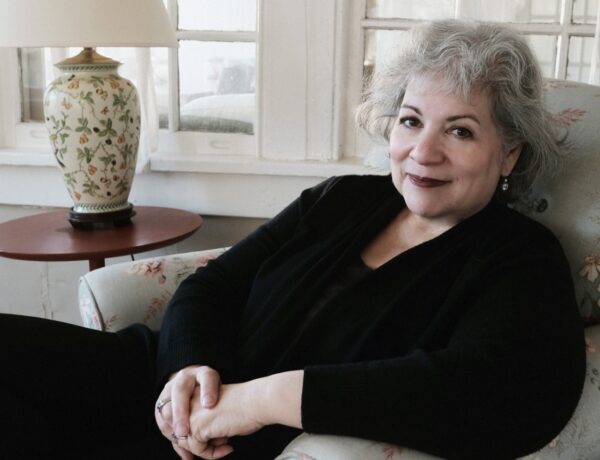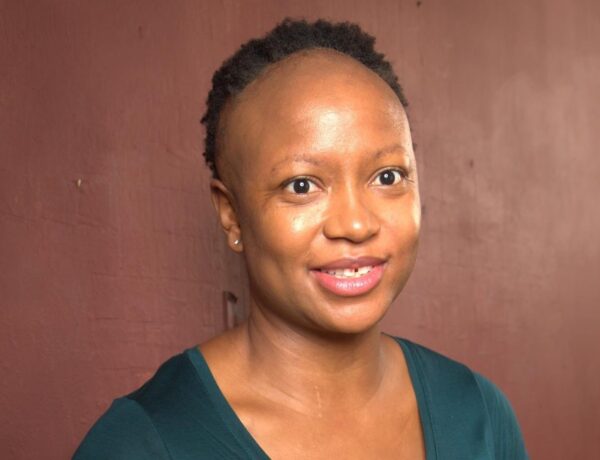Elvia Wilk is a writer living in Brooklyn. She is the author of the novel Oval (2019) and the essay collection Death by Landscape (2022).
Oval was longlisted for the Center for Fiction First Novel Prize and was described in The New Yorker as a “finely observed dystopian mirror.” Death by Landscape is a constellation of essays about storytelling and climate crisis, which Jonathan Lethem called “the stealth memoir of a supertaster of our present moment.”
Elvia’s essays, criticism, and fiction have appeared in The New York Review of Books, The Nation, The Atlantic, n+1, The Paris Review, Artforum, Bookforum, BOMB, Frieze, The Baffler, The White Review, and several artist monographs and exhibition catalogs.
She has received an Andy Warhol Arts Writers Grant and a fellowship at the Berggruen Institute. She is a contributing editor at e-flux Journal, works with writers on individual editorial projects, and teaches at places including Eugene Lang College, City College of New York, and the Berlin University of the Arts.
Each week, we publish a new daily writing routine from a famous author. Subscribe to our newsletter so you don’t miss out!
Hi Elvia! We’re delighted to have you as a guest on Famous Writing Routines. For our readers who may not be familiar with your work, could you please give us a brief introduction to yourself?
I’m a novelist, essayist, critic, and editor. I live in Brooklyn right now. I spent many years writing reviews, mostly about art, which I still do. I write a lot of pieces for artists and with artists. I hop between or maybe straddle or maybe just lie down between art and literary worlds, which is a weird and sometimes confusing place to be, but mostly right for me.
I write long and bendy essays about all kinds of things, most recently in a book of essays about the way literature is evolving in the time of extinction. Before that I wrote a novel that could be called speculative. I work with other writers as an editor. I have taught at various places. I do a lot of interviews and talks, which I love, because conversations (and reading is also a type of conversation) are the seeds of all writing.
Can you talk about your experience as a recipient of a Warhol Arts Writers grant and fellowship at the Berggruen Institute and how it has impacted your work?
Writers need funding because otherwise we have only 20 minutes a day to work on our masterpieces. These particular opportunities were special because they supported a specific research interest of mine (artists who work with nonhuman collaborators like microbes, animals, and trees) and so they helped me think about certain types of my own work as cohesive.
Each of these grants had year-long arcs, although with very different outcomes. Also, getting support, besides giving a person time to work, can also validate a person and make a person feel like they are in the right line of work. On the other hand, not getting support should not make a person feel like they are in the wrong line of work. Awards are scarce and random.
How do you balance your various roles as a writer, editor, and teacher, and how do these different aspects of your career inform one another?
All of these roles are about asking questions. Editing is asking the right questions. Teaching is helping people learn to ask the right questions. Writing… I suppose it’s asking yourself the right questions.
Writing is so much more collaborative than most people realize. I learned to be a writer, and I learned to be an editor, by being edited by great editors and by sharing writing with friends. The best editors are those who do not try to write your work for you, they poke you until you figure out what you want to say. Like teaching, like talking to friends, like reading, like writing, editing is a process of testing out ideas with someone else.
Students push me to articulate myself in particularly important ways. You can’t get away with messy language or posturing, or at least you shouldn’t. Giving talks and readings can be a similar type of interaction, just in that you try to get closer to what you mean each time. I used to get nervous about talking in front of people but that doesn’t happen anymore. I don’t know why that changed. I think it’s because I learned that you don’t have to come in already knowing what you think. The people listening help you figure it out.
A friend once told me that writing, reading, and talking all go around in a circle and make each other better and better the more you do all three of them, hopefully forever.
Discover the daily writing habits of authors like Stephen King, Neil Gaiman, and Gillian Flynn with Famous Writing Routines Vol. 1 and learn how to take your writing to the next level. Grab your copy today!
What does a typical writing day look like for you?
Every writing guide will tell you to write immediately in the morning before you do anything else. Haha! Most mornings I wake up to scary emails about things like deadlines, meetings, or edits on a piece that are urgently due, and I can’t focus on anything until I respond to some of them.
When I wake up sometime between 9 and 11, I go outside to get a few minutes of sunlight. Then I go inside, put on an outfit that feels “lucky,” turn on a UV lamp, and sit with my face very close to the computer screen for 6-10 hours. I do admin that I can’t avoid and then I work on writing and editorial projects and then I do more emails. I usually have some kind of phone or video meeting in the middle. I text my friends constantly all day long.
If you really want to know, I eat lunch at the desk while reading advice columns and at some point I try to take a break for some form of exercise. I usually have evening plans, which is how I know it’s time to stop working.
If I’m working on a book or big thing I will try to write 500-1,000 words or revise 2,000 words in a day. If I’m working on a short-form assignment I will research one day, gather notes the next day, draft the third day, and revise the fourth and fifth days—meaning I budget five days for short-form assignments. On weekends I do house things and I try to go outside more, but I work for at least a few hours seven days a week.
Can you tell us about any daily habits or rituals you have that help you stay productive and focused while writing?
I’m allergic to rigid habits, because for me they tend to wind up as superstitions. “If I don’t start writing at x hour, I can’t write anything today,” etc. If I feel like I’ve failed to hit a benchmark it ruins me, so my only rule is just to write whenever I can and however I can.
I find that the discipline required for writing can easily tip over into self-punishment if I’m too solemn or moralizing about what is “enough” or “right”: I’m not a better person for having written more words in a day; that was luck, which is contingent on me showing up to work when I can…so I just show up. Also, I have a chronic illness, which makes it hard to stay consistent. On a high symptom day, any aspirational routine is going to be completely shot, and that’s FINE.
I write for two reasons: one is to earn a living; two is total revenge on what you’re supposed to do with a life. Sometimes these overlap and often they don’t.
If you could have a conversation with an author throughout history about their writing routine and creative process, who would that person be and why?
I would like to ask Kurt Vonnegut, one of my favorite authors, how he managed to ignore his family every morning until he had completed his daily work on his typewriter. Then I would like to ask his wife Jane Cox what her routine looked like: how she managed to care for all their children while Kurt was sequestered in his office, and how she found time to write so many letters and edit Kurt’s writing as well. If I had a bonus question I would also ask Kurt about the Tralfamadorian phrase in response to death: “so it goes.”
What have been some of your favorite reads recently?
I’m on a wildly good reading streak. On the last day of 2022 I finished The Book of Sleep by Haytham El Wardany, which was gorgeous and made me cry (unusual). El Wardany suggests that political revolution requires the ability to allow ourselves to sleep: collective action is premised upon rest and the ability to cross over to another realm of life where productivity is besides the point. Incredible.
Then I read Health Communism by Beatrice Adler-Bolton and Artie Vierkant, a perfect extension of that line of thinking, which argues that surplus populations (the sick, the elderly, the unproductive) are exactly the groups that must come together to dismantle systems of oppression. Yes.
Then, at the suggestion of someone in my writing group, who told me it might help me construct my novel-in-progress, I read Goethe’s Elective Affinities. Let me tell you: this book is totally metal. I had no idea it was so erotic and gay. Plus it DID help me with my own plot.
Now I’m 800 pages into David Graeber’s 1,200-page Debt: The First 5,000 Years and all I can say is that I regret not reading this ten years ago. Don’t make the same mistake I did: read it now.
What does your current writing workspace look like?
On the occasion that I am feeling well and have a meeting-free day I go to a desk in a shared office where there is a fancy printer, fast wifi, and a bin full of chocolates. When I have a lot of meetings scheduled or when my health is not so good, as on most days, I work at a desk in my living room surrounded by artwork made by my friends and plants.
Both of these desks have computer monitors and adjustable chairs for ergonomic purposes. On very bad health days I work from bed and let my spine take the hit. My boyfriend (also a writer) and I share our home and workspace, and we decide every day who is going to work where. I’m very lucky.

Affiliate disclaimer: Some links on this website are affiliate links. We may earn a small commission if you make a purchase through these links, but only promote products we truly believe in. We disclose affiliate links and give honest reviews.



No Comments